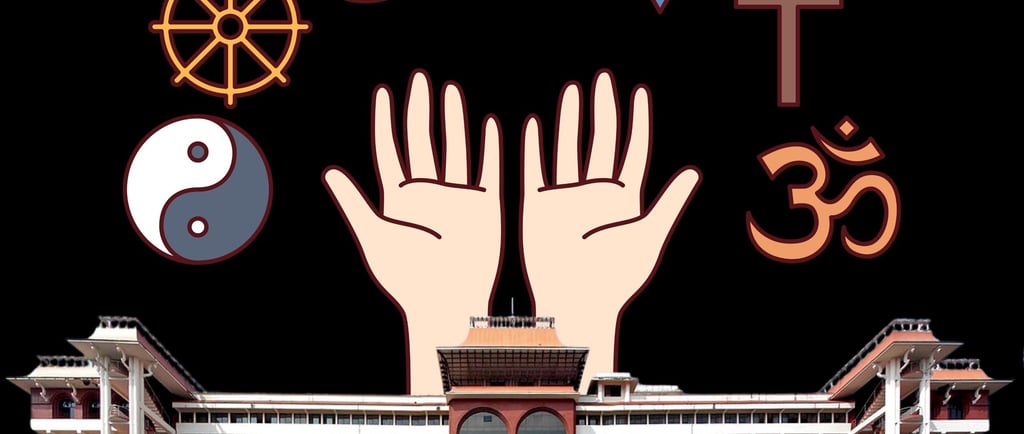Kerala High Court: Opposition by Another Community Doesn’t Justify Blocking Religious Places
The Kerala High Court recently ruled that opposition by one community cannot justify denying permission for the establishment of a religious place in the absence of evidence of communal disharmony. The Court made this observation while setting aside an order that refused permission to establish a Muslim prayer hall.
11/18/20242 min read


The Kerala High Court recently ruled that opposition by one community cannot justify denying permission for the establishment of a religious place in the absence of evidence of communal disharmony. The Court made this observation while setting aside an order that refused permission to establish a Muslim prayer hall.
In the case of KT Mujeeb v. State of Kerala & Ors., Justice Mohammed Nias CP emphasized that religious freedom is a fundamental right under India’s secular Constitution. He noted that merely opposing the establishment of a religious place does not automatically lead to a breach of peace. “In a democracy where citizens have the fundamental right to practice their faith, the establishment of a religious place cannot be curtailed merely due to opposition from other groups,” the Court observed.
The Court further stated that objections raised by individuals from other communities cannot serve as a valid basis to restrict the religious freedoms guaranteed under Articles 25 and 26 of the Constitution of India. The judgment clarified that the State must differentiate between “public order,” which involves maintaining societal harmony, and “law and order,” which deals with specific disputes or localized issues.
Background of the Case
The dispute arose over a property owned by the petitioner, KT Mujeeb, which had been used as a prayer hall since 2004. In 2014, Mujeeb obtained a permit to replace the roof of the building. However, some local residents alleged that the property was being converted into a mosque, prompting the panchayat to issue a notice accusing Mujeeb of unauthorized construction and directing him to cease religious activities.
Subsequently, the Revenue Divisional Officer (RDO) ordered the closure of the prayer hall, citing concerns over communal harmony. Mujeeb approached the High Court, which initially granted an interim order allowing limited use of the property under specific conditions.
Denial of NOC and Rejection by the Court
Mujeeb later applied to the District Collector for a No Objection Certificate (NOC) to use the property for religious purposes. The application was rejected, leading Mujeeb to approach the Court again. He argued that the orders against him violated his fundamental right to practice religion.
Local authorities contended that the building lacked proper approvals and that its use for religious purposes could disrupt community harmony. They also raised concerns about the property being converted into a mosque. However, the Court rejected these arguments, criticizing the authorities for failing to distinguish between public order and law and order.
Observations and Judgment
The Court noted that public order concerns collective societal harmony, while law and order relates to individual disputes. It observed that proximity to other mosques in the area was not a valid reason to deny the petitioner’s application. “Conflicts among different faiths can disrupt public order, posing a threat to the secular fabric of our nation. The State must balance safeguarding religious freedom and upholding secularism,” the Court added.
The High Court quashed the orders against Mujeeb and directed the District Collector to reconsider his application. It emphasized that the State machinery must preserve communal harmony while respecting religious freedoms.
Representation in the Case
The petitioner was represented by Senior Counsel S. Sreekumar, along with advocates P. Martin Jose, P. Prijith, and others. Government Pleader Devishri R. appeared for the State, while Senior Counsel T. Sethumadhavan represented a private respondent. The Pollution Control Board and the panchayat were represented by their respective counsels.
